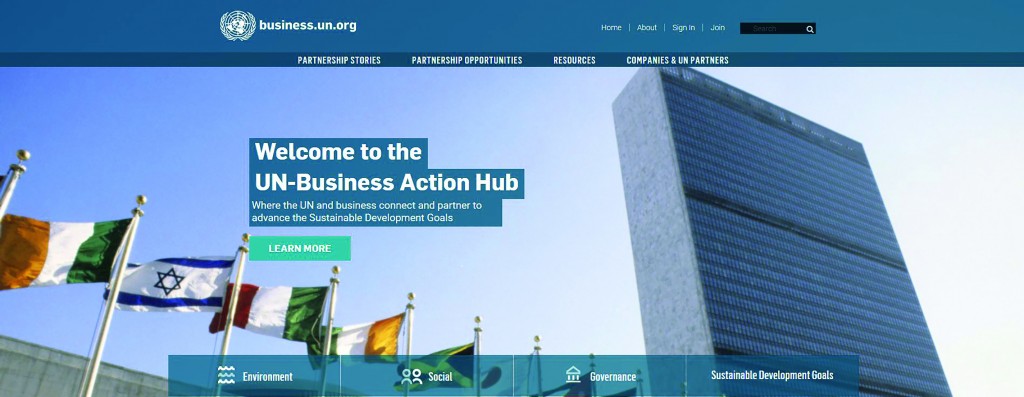“No plan B because there is no planet b!”
Ban Ki-moon put it best. “We don’t have a plan B because there is no planet B.” The former chief of the United Nations was talking about mankind’s need to transform the world. Where, though, should the human race begin? We are surrounded by hurting people on a hurting planet. Which priorities should we follow? What goals should we target?
The United Nations gathered its 193 countries to discuss this, along with NGOs, companies, academics and other experts. 2015 had marked the completion of the Millennium Development Goals and the world wanted a further set to serve as lodestars, going forward. After 18 months, they came up with 17 global goals for the world to address by 2030. They call them the Sustainable Development Goals: the SDGs.
Through Crossroads’ Global Hand service, our IT team continued to partner with the UN through further iterations of a website that brings them all together: www.business.un.org
On September 24th, 2015, the day the SDGs were launched, the revised website was launched as well. That marked our tenth year of partnership with the UN on this project.
During the current period, we saw a wide range of corporate engagement through this website’s varying services.
CORPORATE COMMITMENTS TO SDGs
During the year, 36 major corporate commitments were published toward fulfilling the SDGs. Examples include companies from the following sectors:
- Health Care: Novartis made commitment to cut greenhouse gas use to 50% of 2010 levels.
- Industrial: Novozymes made commitment to save 100 million tons of CO2 by 2020.
- Telecommunications: Schneider Electronics made commitment to reduce operational CO2 emissions and factor CO2 minimising into all new large customer projects.
- Energy: ENEL planned to invest Euro 8.8 billion from 2015-2019 into renewable energy. This will make it the largest renewable energy operator in Africa.
- Construction: STET made commitment to replace water intensive mineral process with waterless and low emission technologies.
- Retail: H&M made commitment to purchase energy from renewable sources, expecting that to be 80% of their current usage.
COMPANY PLEDGES FOR REFUGEE CARE
As the world grapples with a refugee challenge of unprecedented size and scope, companies used the website to make pledges in response. During this period 38 significant pledges were published totaling an estimated US$22 million. Following are a few examples.
- Deutsche Telecom pledged shelter location, provision of Wifi and pre-paid data cards and internship positions for refugees.
- Bayer pledged to establishing apprenticeship opportunities.
- Bosch group pledged funding, refugee internships and land for construction of refugee centres.
- Sinofi pledged funding for partners supporting refugees.
- Man Group pledged funding for partners helping refugee children.
- Evonik Industries pledged funding toward vocational training and language proficiency.
- Tesco pledged funding for refugees through British Red Cross.
- Several universities and post graduate schools offered scholarships to post graduate refugees.
CORPORATE PROJECTS UNDERTAKEN WITH THE UNITED NATIONS
During this period, 36 corporate projects were posted on the UN site. The postings detail the project’s vision and objectives and, while each stands alone, they also invite other organisatons to partner or collaborate in the fulfilment of their objectives. The estimated expenditure for the year is over US$30 million. There is a massive range of projects and objectives, representing many sectors of society. Here is a sampling.
- Education for refugee children
- Monitoring health of coral reefs
- Midwife care to reduce maternal and neo natal deaths in Asia, Africa and Latin America
- Reduction of water losses in Brazil’s elimination system
- Elimination of sleeping sickness
- Broadening the use of sugar cane based plastics, reducing the need for fossil fuels
- Elimination of avoidable blindness through provision of affordable, subsidised surgical procedures or medical care
- Grain garnering partnership to scale up core value chain activities such as warehousing, production, and logistics, so empowering small volume maize farmers



